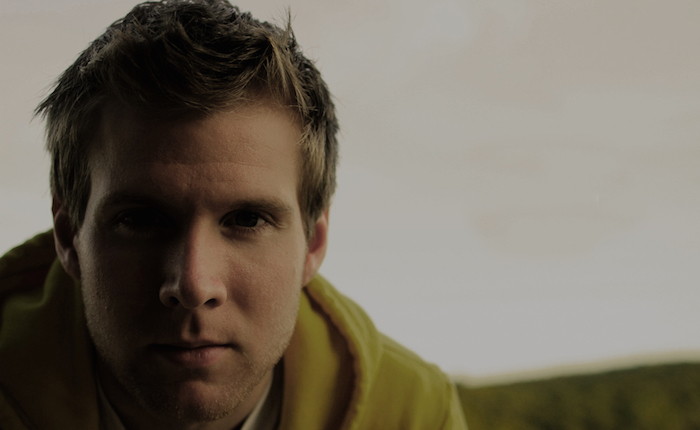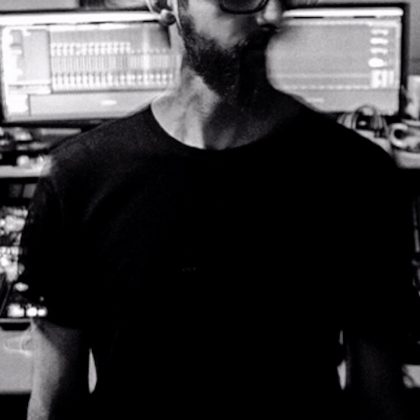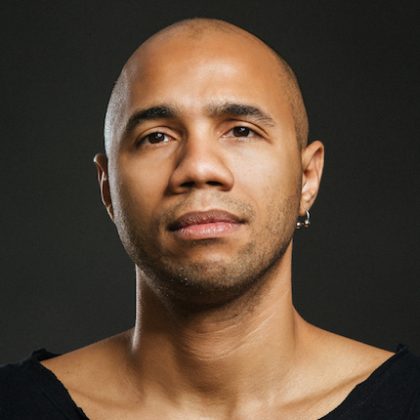Metronome #056: Nigel Good
Insomniac’s Metronome series features mixes from some of today’s fastest-rising electronic stars, as well as championed legends. It takes listeners deep across a wide range of genres, movements, cultures, producers, artists and sounds that make up the diverse world of electronic music.
It’s hard to feel productive when you’re standing next to someone like Nigel Good. The up-and-coming producer from Canada is currently running laps around the competition, all while splitting his time between two respectable professions. When he’s not on the clock educating our youth as a grade-school teacher, Good is logging endless hours in the studio to add to his cache of cerebral, boundary-disintegrating compositions.
At the end of the day, though, it’s not about having an extra paycheck to his name. Nigel is on a personal mission to explore the expanses of progressive house. With his sophomore album, Space Cadet, he manipulated and merged myriad genres into an awe-inspiring celestial body of work. And it’s this fly-directly-into-the-abyss mentality that has names like Above & Beyond and Porter Robinson cheering him on.
As his star continues to shoot straight into the wide-open sky, we’ve tracked down Nigel Good and asked him to take us on a trip through his singular sound.

It took a year and a half’s worth of work for you to wrap up your latest album, Space Cadet, on Monstercat. At the rate dance music evolves these days, how do you ensure older tracks on the LP, like “Nova,” didn’t sound dated?
I’m not too worried about keeping my sound current and in touch with trends in the electronic music world. The progressive house sound that I love had its peak around 2008, and I never really got past that. It doesn’t mean that I’m not inspired by recent trends, but I always have my own interpretation of it rather than to check off all the “essentials.” For example, my remix of “Save Tonight,” which came out before Space Cadet, was very influenced by tropical house like Kygo. It has some conga percussion, some spacey mallet stuff, and a smooth sound, but the tropical-ness sort of stops there.
Obviously, not all productions you worked on made it onto the LP. I really admired your Abandoned Concepts idea of taking unfinished tracks and sharing them in a mix. What compelled you to showcase all of these half-baked ideas?
I’m a teacher by trade. I always encourage students to recognize the work and effort that was required to get to their final product. They may show you a polished piece of printed writing, but so much more went on behind the scenes for that piece to be created. There are countless revisions, omitted ideas and paragraphs, and whole parts of brainstorming activities that never make their way to the final copy. I guess it’s kind of like that.
While I don’t publish that material in the Abandoned Concepts mixes, I like sharing them because it helps listeners and producers understand how many ideas get crumpled up and thrown in the wastepaper basket. It’s the same when I sit down with a student and we look at a rough copy together.
Even the best producers only actually publish a fraction of their work—the best of it, really. I think it also shows that producers should have fun. There’s nothing lost in taking a progressive house track, boosting it to 170 BPM, swapping out the percussion, and injecting some old sliced-up vocals, just to see how it sounds. It might turn out terrible, but it was an endeavor in experimentation, and sometimes those experiments work beautifully. And most importantly, it was probably a lot of fun.
Even as someone who started playing piano at age 5 and got an early jump at producing music, there’s always room to learn something new. What’s the last production technique you picked up on?
I think mixing is something that has improved significantly. I can’t pinpoint one particular technique that has made it better in my latest work, but when I listen to Space Cadet and compare to Nothing Out Here (my first album), the differences are massive. It wasn’t a mastering thing, but instead an improvement in mixing. I’m still not where I want to be with mixing, but it’s getting better. It’s sort of an unconscious thing, and it’s more about listening than one particular technique.
You’re known to mess around with a multitude of genres and tempos. What’s the common denominator connecting all of your productions?
Regardless of the genre or tempo, all my tracks have feel-good melodies. Sometimes, I am working on a track and I think, “Hmmm, I’ve already done a track with pretty much this exact same chord progression,” and that makes me hesitate.
As a producer, you want your work to have variety, and having two tracks with the same chord progression doesn’t quite feel fair at times. It almost feels like you’re cheating. But then I think, “Well… there are really only a few chord movements that really hit you in the feels.” You know the chords I’m talking about. I heard this mashup of a whole bunch of country pop songs, and they all feature the same chord progression (IV-I-V, for the music people). You can look at that video and say, “Wow… these guys are so unoriginal.” But hang on, they’re using that chord progression because of how it makes you feel, and there is no other progression that makes you feel like that one does.
Lots of other chord progressions make you feel lots of different ways, but none like that one. It’s that melancholic/optimistic/pensive/you-can-do-it feeling. So, to bring it back to the question, a common denominator is that all my productions feature chord progressions that make you feel like that. And I’ll never get tired of it.
I saw your reverb tutorial on YouTube, with news of more on the way. What’s the roll-out plan looking like for these?
I don’t really have a timeline for when I hope to make more. I have lots of ideas, but it takes a little bit of time to set up the environment to do it well and productively. I need to do two more tutorials to finish my space ambient tutorial. You can follow my YouTube channel to get the latest updates as they come.
Many bedroom producers lean heavily on online production lessons. Where would you direct them to for a solid jumping off point?
If you put a child in a room with a bin of Lego, they’ll start creating things. They don’t need to read the instruction manual. When they get to the point where they know how things go together and want to check some instruction books to see how other people build things, they will. Eventually, their creations will become more sophisticated and solidly built. But until that, there’s nothing wrong with getting yourself a DAW and just having fun. It’s all pretty intuitive. I know a ton of producers who are self-taught. When I was a kid, there was no YouTube and no production videos. I will say: one thing that helped me a lot as I was learning how to produce was opening finished songs (in ModTracker, then Fruityloops) and just seeing how other people assembled the tracks. Explore other people’s projects and get a sense for how different sounds are made, arranged and mixed.
But, sometimes, I think people watch five hours of YouTube videos about compressing a snare drums and forget that this knowledge can come naturally through play and experience. It’ll happen. It doesn’t mean tutorial videos aren’t a huge help, but I sometimes think time is better spent just experimenting in a DAW. It’s like giving someone a skateboard and saying, “Wait, watch all these videos about the kickflip, then try it.” Well, you should first probably learn how to stay on the thing and not fly off (something I never accomplished as a kid). In short, just start having fun and exploring the software. The kick-flip will come naturally when the time is right.
Share some words on the Metronome mix you’ve put together for us.
My mix has some favorites. There’s a bit of breaks, but it’s mostly progressive house. It’s pretty short at just over half an hour, about the same as my attention span when listening to music.
- Track List:
Louis Vivet “Save Tonight” (Nigel Good Remix)
Andrew Bayer “You”
Michael Cassette “Pangaea” (Envotion Remix)
Dan Sieg “Erko”
Nigel Good ft. Illuminor “No Way Back Up”
Flack.su “T-Break” (Beta Remix)
Mr FijiWiji ft. Openwater “Growing Up”
Follow Nigel Good on Facebook | Twitter | SoundCloud





